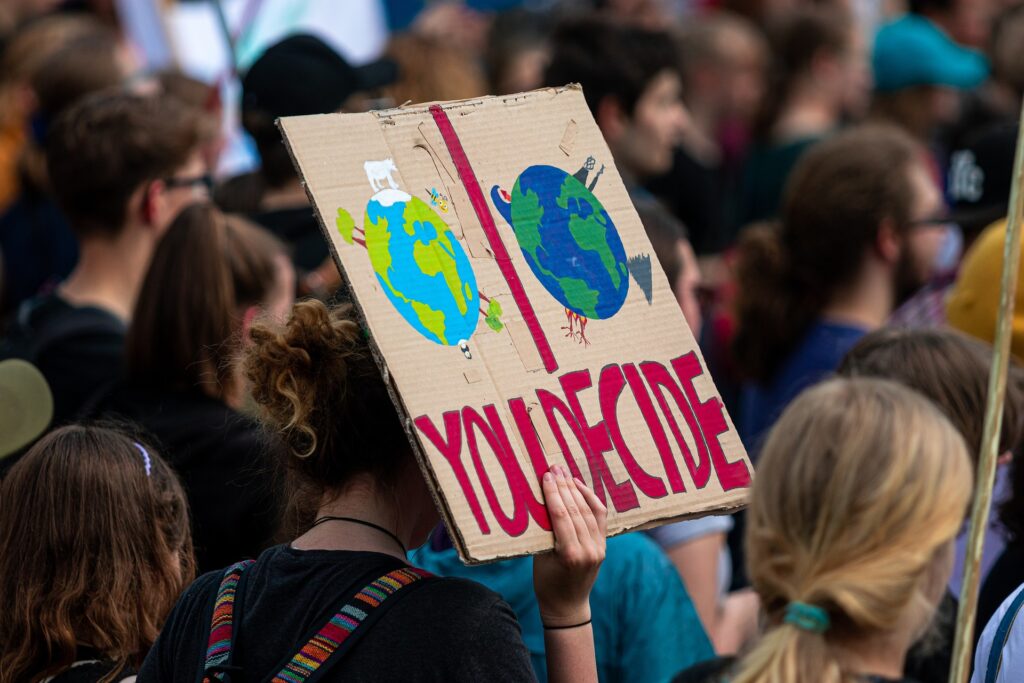
Pixabay / dmncwndrlch
The Biden administration approved the Willow project on March 13. The project, an oil drilling venture on federal lands in Alaska, betrays Biden’s proclaimed commitment to climate action, as cited in his 2020 campaign. This monumental decision undermines the significant progress he has made toward clean energy and improved infrastructure in the United States.
“No more drilling on federal lands … period,” Biden said during his 2020 presidential campaign. Walking back on this pledge is a critical misstep for Biden, especially with presidential elections coming up next year.
Coalitions of different activist groups and environmental organizations, including Earthjustice, the Center for Biological Diversity, the Sierra Club and Sovereign Iñupiat for a Living Arctic have already filed two lawsuits against the project. They cite the threat to Arctic wildlife and endangered species, risk of oil spills, destruction of wetlands, the impact on subsistence communities and the access it would provide to nearby, untapped oil reserves. They also highlight the emissions that will exacerbate climate change, considering the project will produce about 277 million metric tons of carbon dioxide in the next 30 years.
Additionally, the Willow project is polarizing among Alaska’s North Slope Indigenous residents. Many groups pushed for the project to be passed and are celebrating the economic opportunities it will bring, but other Indigenous citizens oppose it out of concern for the health of the resources and wildlife they depend on to maintain their livelihoods and culture.
This could prove to be a defining moment in Biden’s presidency. While some think it will appeal to moderate Americans upset by gas prices, a major drilling project is certain to alienate and anger the large sector of young, progressive voters who previously supported Biden. Russian oil should be a catalyst for the U.S. to accelerate its transition to sustainable energy, not an excuse to double down on destructive fossil fuel extraction and emissions.
Spokespeople for the administration and the Department of the Interior have adopted an almost apologetic tone in their statements on the Willow project, citing legal parameters and pressure from Alaskan representatives. Biden has tried to soften the blow by adding protections that bar oil drilling for 3 million acres of Alaskan and Arctic territory and limit it for another 13 million, but this will not make up for the damage of the Willow project.
Dependence on oil is not only an environmental issue but also a geopolitical one. Many point to the Russian-Ukrainian war and its associated sanctions as a key factor in Biden’s decision on the Willow project. Interstate conflict over oil is nothing new, and war itself can impact oil supply and drive up prices. This is exactly what happened in the U.S. since Russia’s Feb. 2022 invasion of Ukraine.
As Americans are well aware, gas prices have increased significantly in the last year, with the cost of gasoline rising by almost 49% between January and June 2022. Americans have been collectively paying for the sanctions imposed on Russia by Western countries, but the calamity caused by rising gas prices suggests a deeper, underlying issue: global overdependence on oil.
The Western world has historically been reliant on Russian oil — in 2021, 8% of American oil imports came from Russia. Given the world’s dependence on oil, Russia has been a key player for business and commerce. Sanctioning Russia’s oil exports in a show of support for Ukraine is just a band-aid solution to actually demonstrating to Russia that its actions will not be tolerated. In the long term, a more effective way to strike at Putin’s regime would be to wean off oil as a source of power entirely. While this idea may seem far-fetched, other countries have already begun expanding their renewable energy sectors in response to Putin’s 2022 invasion.
Germany, for instance, which was previously heavily dependent on Russian oil, drafted a new bill last year announcing its goal to acquire nearly all its energy from renewable sources, such as wind, hydropower and solar power by 2035. Before the invasion, 55% of German gas was sourced from Russia. If Germany were to quickly move toward renewable energy, a great deal of Russia’s economic and geopolitical influence would decline.
The U.S., however, seems to be going in the opposite direction. The Willow project represents a destructive scramble to find alternate sources of oil instead of focusing on the transition to renewable energy. This is a pattern for the U.S. American military intervention abroad is notoriously linked to the pursuit of oil, which is behind the Iraq War, the Gulf War, the destabilization of the Middle East and tensions with China and Venezuela. In 2016, government officials opted to build the harmful Dakota Access Pipeline despite continuous protests from activists who warned it would violate indigenous sovereignty and contribute to fossil fuel emissions by augmenting oil infrastructure and facilitating fracking. Their concerns about the pipe leaking and contaminating the Missouri River, a major water supply, were validated.
Instead of decreasing U.S. reliance on oil altogether, politicians are digging their heels in to supplement the resource elsewhere — a decision that will have major environmental and geopolitical ramifications.
Though it can be easy to forget, individuals also play an important role in the transition to renewable energy. Pushing oneself to bike, walk, drive an electric vehicle, adopt green appliances at home and encourage others to do so are great ways to help lower our country’s demand for gas.
Putin’s invasion of Ukraine, the global gas crisis of the past year and the proposition of the Willow project should not be viewed as isolated events; they should serve as a wake-up call. The transition to sustainable energy is more important now than ever before. Biden’s search for oil in Alaska is a cop-out; it’s time to face the facts and transition to renewable energy.
The above editorial represents the majority opinion of the Wheel’s Editorial Board. The Editorial Board is composed of Isabelle Bellott-McGrath, Evelyn Cho, Ellie Fivas, Marc Goedemans, Elyn Lee, Saanvi Nayar, Shruti Nemala, Nushrat Nur and Sara Perez.
The Editorial Board is the official voice of the Emory Wheel and is editorially separate from the Wheel's board of editors.




